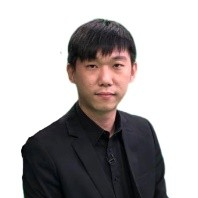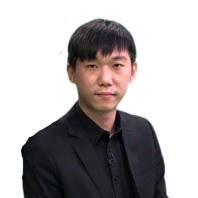
The Association of Rehabilitation of Drug Abusers of Macau (ARTM): A Biopsychosocial Model of Prevention, Intervention, and Continuing Care
The Association of Rehabilitation of Drug Abusers of Macau (ARTM): A Biopsychosocial Model of Prevention, Intervention, and Continuing Care
Pricing
Information
Recorded
-
-
Description
Macau, a Special Administrative Region of China located on the Pearl River Delta across from Hong Kong, is one of the most densely populated territories in the world. Known globally for its tourism and gaming industries, Macau also faces the complex public health and social challenges that emerge in such a high-density, transient, and economically polarized environment. The population includes a large number of migrant workers from Southeast Asia—including the Philippines, Vietnam, Indonesia, Nepal, and Myanmar—whose vulnerability to social isolation, stigma, and lack of resources intersects with issues of substance use, gambling, and domestic violence.
In this context, the Association of Rehabilitation of Drug Abusers of Macau (ARTM), founded in 2000, has developed an integrated model of prevention, intervention, and continuing care rooted in the biopsychosocial framework. ARTM is the only inpatient rehabilitation provider in Macau, but its impact extends far beyond its therapeutic community.
Prevention is delivered through the Be Cool Project, which brings education, sports, and resilience-building activities into schools, universities, and community spaces. This initiative strengthens protective factors for young people and creates healthy alternatives to substance use. Intervention includes Macau’s only therapeutic community for men and women, offering a structured environment for recovery alongside psychological counseling and relapse prevention. A key achievement is ARTM’s government-supported Needle Syringe Program—the first in Southeast Asia—which has achieved six consecutive years with zero new HIV cases among people who inject drugs. This program demonstrates how treatment and harm reduction, when integrated, produce measurable public health outcomes.
Continuing Care is supported by structured aftercare programs, probation-mandated follow-up, family counseling, and reintegration initiatives. The Hold on to Hope Project exemplifies this approach, transforming a former leprosarium into a recovery-centered community hub with a café, gallery, workshops, and vocational training opportunities. By partnering with Macau’s hotel and tourism industries, ARTM ensures that recovery extends beyond abstinence to meaningful participation in society.
ARTM’s work is not carried out in isolation. The organization is a member of the Macau SAR Narcotics Control Commission, Youth Drug Commission, and AIDS Prevention and Control Commission, and actively collaborates with international networks such as the World Federation of Therapeutic Communities (WFTC), the International Federation of NGOs for the Prevention of Substance Abuse (IFNGO), and the Vienna NGO Committee on Drugs (VNGOC). These relationships allow ARTM to integrate local practice with global evidence-based standards, positioning it as a regional model of collaboration. Despite its successes, ARTM confronts persistent obstacles. Individuals completing treatment often still face mandatory prison sentences due to unresolved charges, sending a conflicting message that undermines motivation to seek help. Social stigma continues to frame people who use drugs as criminals rather than individuals in need of care. Like all recovery systems, relapse remains an ongoing challenge, requiring continued investment in long-term support. Taken together, ARTM offers a compelling case study of how prevention, intervention, and continuing care can be aligned in a biopsychosocial continuum that achieves public health impact while restoring dignity and purpose. It demonstrates how treatment systems can integrate with justice, community, and international networks to address addiction in a holistic, sustainable way. For professionals engaged in health, policy, or community work, ARTM provides both a practical model and a motivational reminder of what is possible when systems of care are integrated and recovery is seen as a pathway to full social reintegration.
Learning Objectives
Participants will be able to:
-
Describe the biopsychosocial continuum of care applied by the Association of Rehabilitation of Drug Abusers of Macau (ARTM), including prevention, intervention, and continuing care components.
-
Analyze how integrated harm reduction and therapeutic community models contribute to measurable public health outcomes, such as reduced HIV transmission.
-
Evaluate systemic barriers—such as incarceration policies and stigma—that impact recovery and identify strategies to support reintegration within a public health framework.
Educational Goal
Target Audience
- Addiction Professional
- Counselor
- Marriage & Family Therapist
- Nurse
- Physician
- Psychologist
- Social Worker
Presenters
Financially Sponsored By
- GXC Events - The Global Exchange Conference
